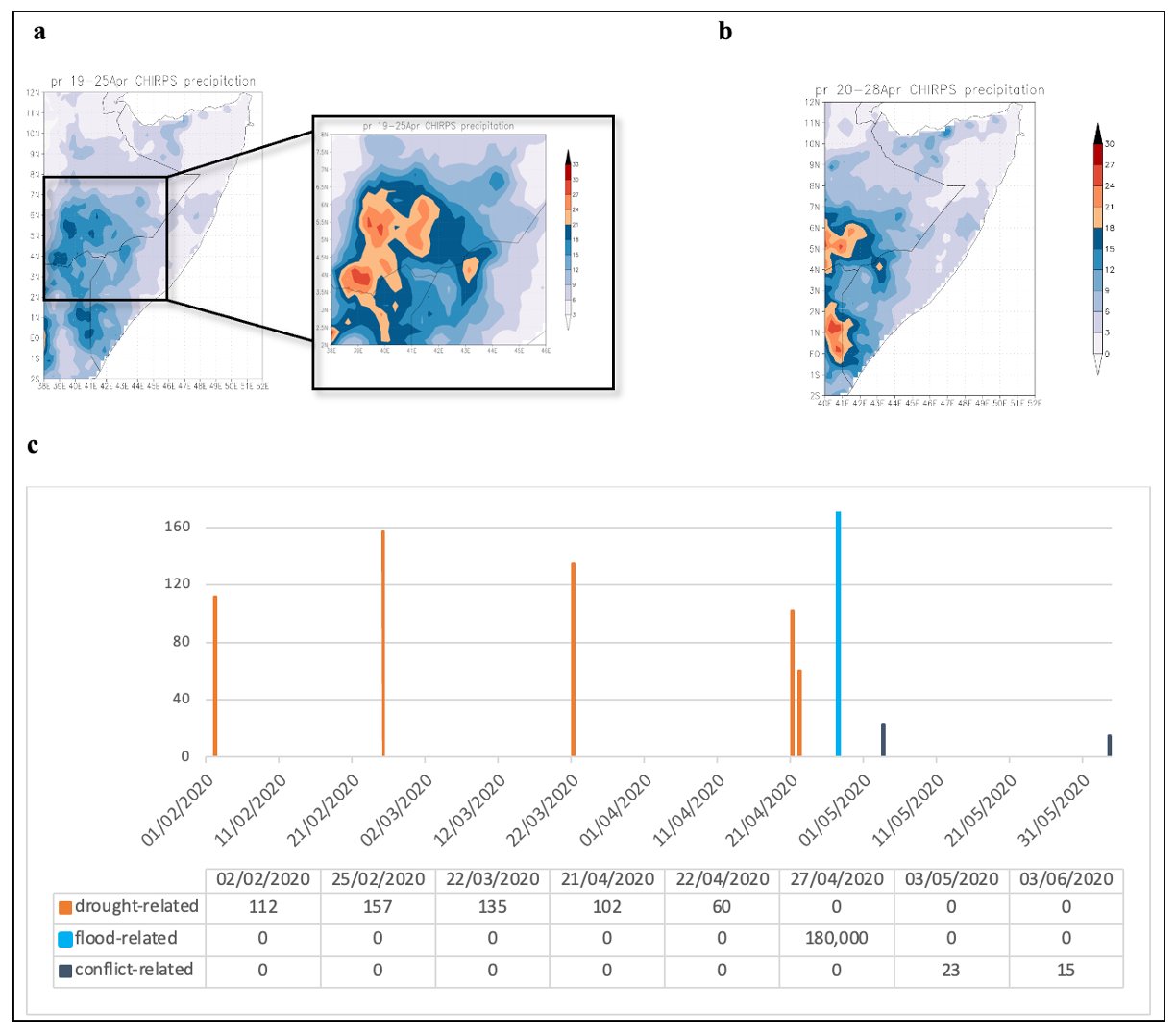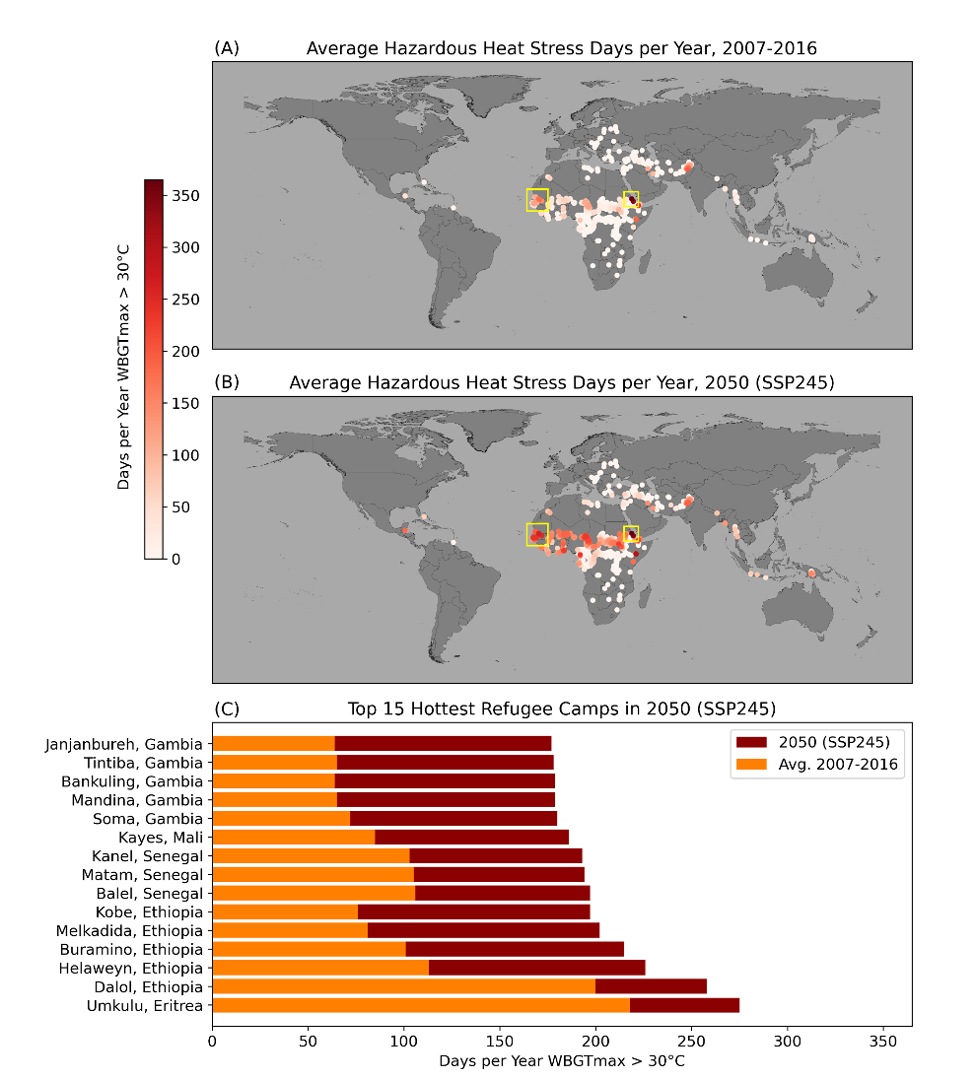Current Research
Event attribution for quantifying the role of climate change in internal displacement: The case of Somalia
with Jesus Crespo Cuaresma, Sihan Li, Raya Muttarak and Friederike Otto.

Summary
The science of event attribution is relatively nascent. While its body of knowledge is growing fast, numerous gaps remain, including on the appropriate statistical methods and the proper consideration of various degrees of vulnerabilities and exposure. We show that attributing climate change to internal displacement requires a focus on the interplay between climate and non-climate drivers of impacts via a feasibility study of the 2020 floods in Somalia. Using detailed internal displacement flow data, we describe the socio-spatial characteristics associated with the flooding event. We show that climate change has a limited role in revealing displacement impacts and magnitude following the extreme event.I have presented this paper at the 2022 Wittgenstein Centre and the 2021 EGU conferences.
Facing involuntary immobility: Prioritizing the marginalized in climate and disaster risk policy
with Fabien Cottier, Andrew Kruczkiewicz, Carolynne Hultquist and Cascade Tuholske.

Summary
Globally, populations are increasingly located in areas at high risk of frequent, extreme weather events. Some exposed populations have the ability to move to safer places; others are unable to get out of harm’s way. The climate risks facing these involuntary immobile populations are not often addressed by local and national authorities, despite increasing recognition by international development agencies and humanitarian actors. Here we discuss when and how climate and extreme weather events lead to involuntary immobility by considering the influence of political, socioeconomic, and environmental factors. Addressing barriers in policy and disaster planning, early warning systems and anticipatory action could be tailored to support involuntarily immobile communities. While policy and planning should be data-informed, lack of appropriate data quality should not limit governments and institutions from taking action. Immobility needs to be aligned with the broader sustainable development objectives which entail climate justice and orderly migration.This paper is an outcome of the World Cafe session at the 2023 Columbia University Managed Retreat conference and co-authored with session participants.
